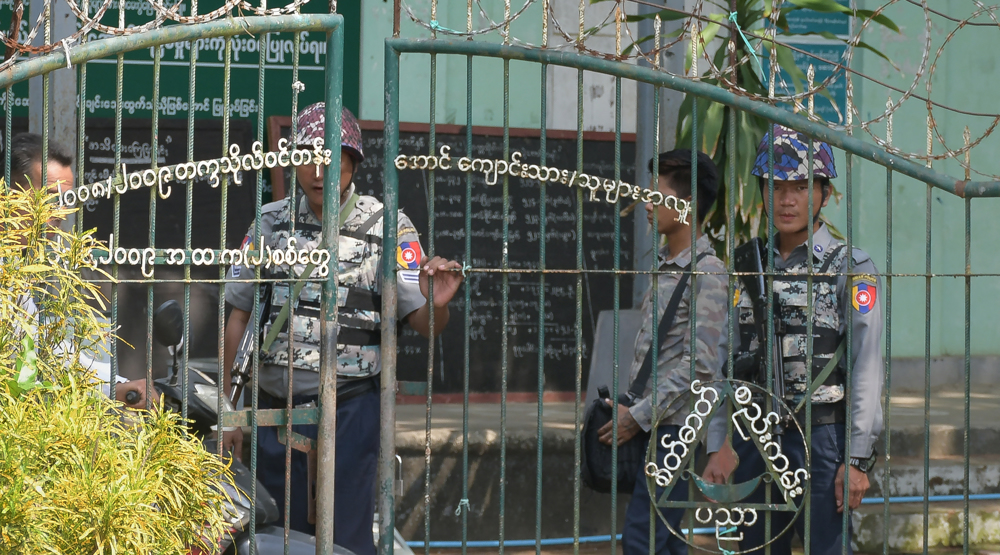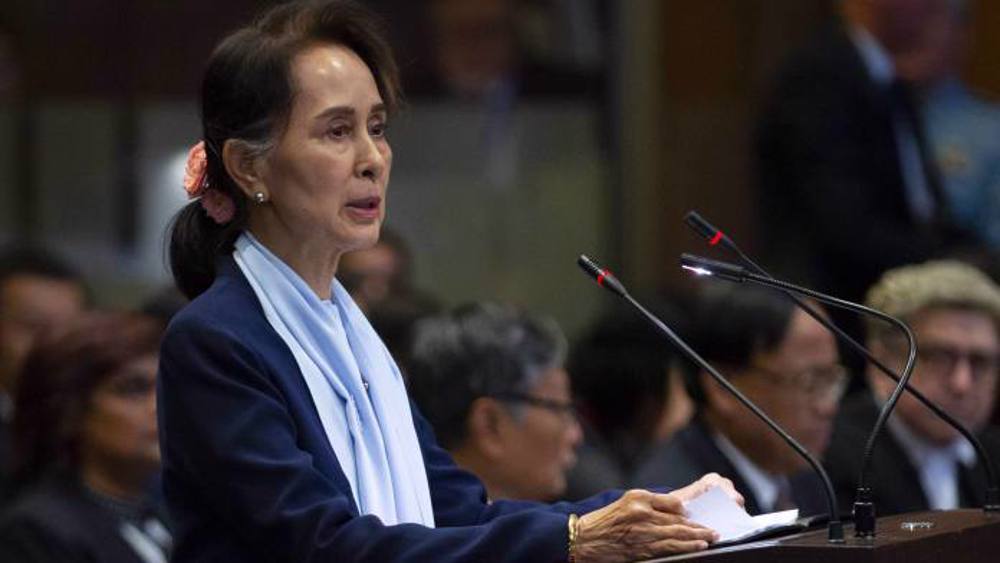Turmoil in Myanmar: Anti-junta protests, public defiance, ethnic insurgency continue
Tensions are still running high in Myanmar, where there seems to be no let-up in daily protest rallies and public demonstrations of defiance. Lately, the situation has been further complicated by a reignition of heavy fighting between the army and ethnic militia groups in border areas.
Anti-junta protesters staged a march in Laung Lone in the far south of Myanmar on Tuesday, a photograph posted by the Irrawaddy newspaper on social media showed.
In the commercial hub of Yangon, a group of mainly young protesters rallied in the district of Kamayut, as indicated in photographs posted by the Myanmar Now news portal.
“This is not over yet. We still have our turn,” read a sign written on a sheet carried by one demonstrator.
Myanmar's military is struggling to impose order since it arrested de facto leader Aung San Suu Kyi and her associates on February 1 over accusations of voter fraud in favor of her National League for Democracy (NLD) party in elections last November.
The military placed commander-in-chief Min Aung Hlaing in power and pledged to hold fresh elections in a year and hand over power to the winner, but has not set a date.
The military takeover of power has triggered massive turmoil at home as well as widespread international condemnation.
According to figures provided by an activist group, the security crackdown against the anti-junta protesters has taken the lives of 840 people since the coup.
In another show of defiance, many teachers and students have refused to return to schools which reopened in Myanmar on Tuesday after a year's absence due to the coronavirus pandemic.
The military rulers have called for full classrooms.
"I'm not afraid of their arrest and torture," a teacher from Yangon told AFP, adding, "I'm afraid of becoming a teacher who teaches the students propaganda."
University classes are also witnessing a widespread boycott by both sides of the teaching lectern.
Lately, decades-old conflicts between the army and ethnic minority militias have also reignited.
The military has unleashed a campaign of bombings and artillery strikes against militias allied with a shadow government. The militia fighters have also stepped up attacks on the army.
The flare-up has forced thousands to flee.
According to residents of Kayah state, the military fired artillery from positions inside the state capital Loikaw into Demoso, about 14.5 km (9 miles) away, where a People's Defense Force said it had attacked troops and was coming under heavy fire.
The residents said that about 50 rounds had been fired on Monday and six on Tuesday morning.
“The sound of artillery is deafening us," a resident of Loikaw, who spoke on condition of anonymity, told Reuters on Monday.
In a post on its Facebook page, the Karenni Nationalities Defense Force, a militia active in Kayah state, claimed that 80 army soldiers had been killed on Monday, while one of its militants and a civilian had also lost their lives.
Around 37,000 people have been displaced due to fighting in Kayah in recent weeks, according to the United Nations.
Myanmar was ruled by the military from 1962 until 2011, when Suu Kyi ended the junta rule.
Her international reputation has been tarnished because she defended a military campaign of genocide against the minority Rohingya Muslim community in 2017.
Suu Kyi, 75, has been detained since the coup and charged with various offenses, including violating a colonial-era official secrets act that alone could see her imprisoned for 14 years.
As Iran, Russia conclude drill, ex-US Army officer warns of surprises
VIDEO | Press TV's news headlines
UN investigators: ‘Hallmarks of genocide’ found in Sudan’s El Fasher
UN rapporteur Albanese: Israel’s West Bank land grab 'will consolidate annexation'
Three Palestinians killed in Israeli raids on Gaza on first day of Ramadan
Hundreds of Dutch nationals served in Israeli military amid Gaza genocide
‘Playing with fire’: Russia sternly warns against any attack on Iran
VIDEO | Iran, Russia naval forces rescue hijacked ship in mock operation during naval drills














 This makes it easy to access the Press TV website
This makes it easy to access the Press TV website